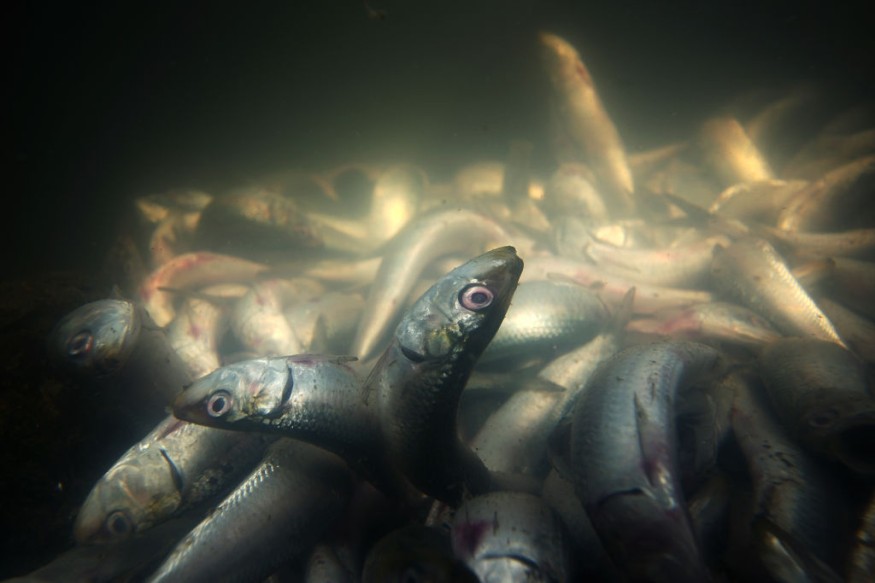
Some 100,000 dead fish were dumped and thrown into the sea off the coast of La Rochelle, France, by a Dutch-owned fishing trawler, one of the world's largest fishing vessels.
The factory ship's owner blamed the fish waste on a faulty net, dismissing it as a "fishing accident".
A "floating carpet" of dead fish is a sign of overfishing, France24 reports, condemning the dumping as a "pillaging" of the sea.
"Dumped at sea, lost on land or left to rot in shops and fridges, the global catch of fish is being wasted like never before - hurting not only the oceans but the nutrition of billions of people," The Guardian wrote.
Taking figures into account, a new WWF research showed that around 230,000 tonnes of discards were reported in the EU waters, whereby 92% come from "bottom trawl fisheries," a fishing method that scrapes the seafloor.
However, the UN Food and Agriculture Organization (FAO) estimates that the figures were just a small fraction of an even larger global issue.
According to reports, 35% of all fish, crustaceans and molluscs captured from oceans, lakes, and fish farms are wasted before they ever reach a plate.
Fish Waste is Waste of Wildlife
Over the years, the fish population has been threatened by overfishing, and by 2020, the current rate of fish consumption is projected to double.
"We have to do something about it," said Omar Peñarubia, a fisheries officer at the FAO.
Although it had been difficult to understand exactly what is driving waste between harvest and plate, evidence is clear that most fish waste starts at the point of extraction, where under half of all fish consumed by people wild-caught at sea.
"There's such abundance that we've grown to be OK with certain loss rates," Pearson said, noting that 34% of global marine stocks are now overfished.
Roughly 10% of bycatch (unwanted fishes) are discarded worldwide each year, representing 8.6m tonnes of animals, mainly due to imprecise fishing gear and policies allowing fishers to discard non-target species. That's millions of fish wasted.
A Lost Nutritional Opportunity
Three billion people depend their diet on fish, which makes it "more than just a physical loss".
"The narrative is that we have to produce more to feed the growing masses, but the greatest pathway to [increasing] supply is reducing loss and waste," said Shakuntala Thilsted, global lead for nutrition and public health at World Fish.
Using fish farms that generate more than half our fish supply is one of the solutions to the waste of wild fishing.
However, various factors, such as disease, are driving considerable losses on farms, too, said a senior scientist.
Although fish waste continues after harvest, it was found that the case varies in certain locations.
For instance, FAO estimated that 27% of all fish worldwide is lost or wasted after landing more than distribution, but fish is more likely to be unintentionally lost than wasted in low-income countries.
Fish loss is also apparent almost exclusively in middle-and high-income countries due to retailers and consumers, especially in North America, Oceania and Europe than in any other region in the world.
Related article : New Satellite Data Reveals Freshwaters are Growing Fresher and Salt Waters are Growing Saltier
© 2026 NatureWorldNews.com All rights reserved. Do not reproduce without permission.





